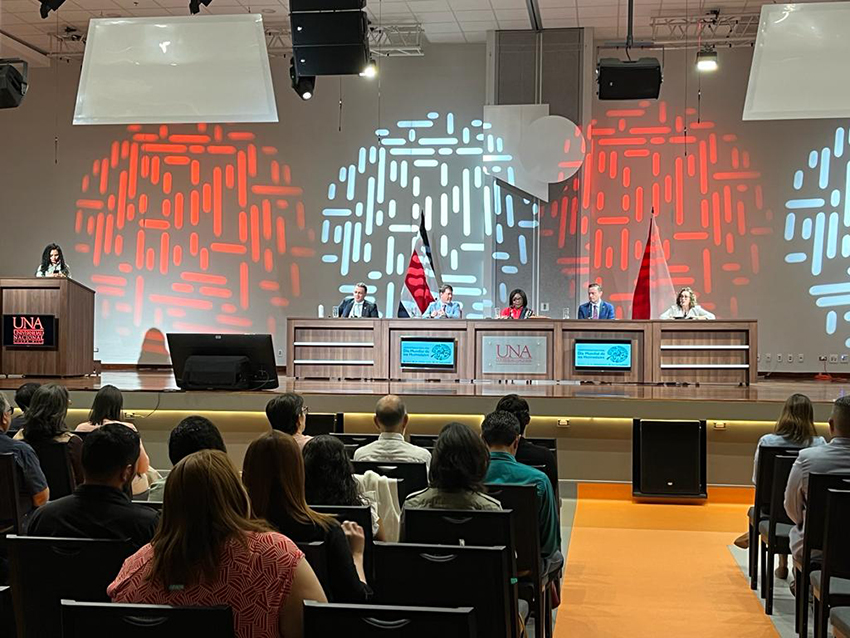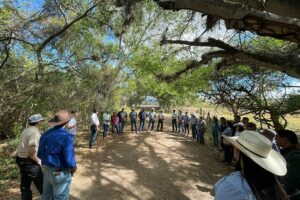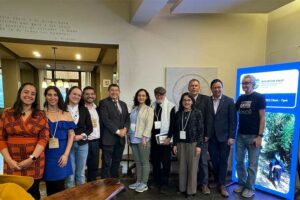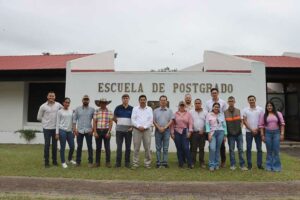Visit of the Secretary General of the Convention on Wetlands recognizes Costa Rica's work in conservation and wise use of wetlands

- The country is home to 52 802 hectares of mangrove ecosystems, of which 14 336 hectares have the potential to become blue carbon reservoirs.
February 7, 2023. From February 6 to 9, Costa Rica is hosting the celebration of World Wetlands Day as a reflection of its environmental leadership, and as part of this activity received Musonda Mumba, secretary general of the Ramsar Convention on Wetlands.
World Wetlands Day, which is commemorated every February 2, was declared by the United Nations (UN) General Assembly in 2021, and this year's theme is "It's time for wetland restoration".
During the visit, the Ramsar Secretary General participated in the inaugural conference of the World Wetlands Day celebrations, held at the National University. During this activity, national experiences on wetland restoration were presented, such as lagoons in the Caño Negro Ramsar Site, mangroves in the Estero Puntarenas Wetland and the Palo Verde Ramsar Site - Cipanci sector and monitoring of these ecosystems.
In addition, the Regional Strategy for the Management and Conservation of Mangroves in the Gulf of Nicoya, Costa Rica, 2019-2030was presented, which was designed with the technical support of CATIE (Tropical Agricultural Research and Higher Education Center).
In turn, the inauguration highlighted the participation of countries in the region such as Ecuador, Colombia and Mexico, who presented their experiences in wetland restoration; and also approved Resolution XIV.12 on Strengthening Ramsar's connections through youth, which is the first of its kind, and seeks to recall the principle of intergenerational equity that underpins the conservation and wise use of wetlands, which contributes to achieving sustainable development for the welfare of present and future generations. This resolution was presented by Australia and Costa Rica at the last COP14 in Geneva, with the full support of the contracting parties.
Finally, the launch of the National Blue Carbon Strategy took place, which responds to a mandate contained in the National Wetlands Policy 2017-2030. The strategy was presented by the National System of Conservation Areas (SINAC) with the support of Conservation International - Costa Rica.
This strategy is linked to the National Decarbonization Plan, and in compliance with international obligations under the Paris Agreement of the United Nations Framework Convention on Climate Change (UNFCCC), Costa Rica submitted an update to its Nationally Determined Contribution (NDC) in 2020. In this update, marine-coastal ecosystems were included for the first time as part of the solution for mitigation and adaptation to climate change, as is the case of mangroves.
The general objective of the National Blue Carbon Strategy is to establish a framework that integrates actions related to the management, conservation, restoration and rehabilitation of blue carbon ecosystems and wetlands with carbon sequestration potential, in order to promote a model that benefits the communities that depend directly on the ecosystem services they provide.
With the launching of the National Blue Carbon Strategy, Costa Rica opens the way to develop the concept of blue carbon as a nature-based solution that can produce a better quality of life and an option to ensure the health of the environment.
Secretary Mumba stressed that Costa Rica's decision to launch this strategy goes hand in hand with resolutions approved by the Ramsar COPs and with the United Nations Decade for Ecosystem Restoration, which seeks to urge countries to make such decisions. "The UN Decade of Ecosystem Restoration is a great opportunity for all of us to rethink and change the way humans impact the environment, and an opportunity to restore vital ecosystems such as wetlands. By activating all relevant actors, from the general public to key stakeholders, we are mobilizing an entire generation for wetland restoration," said Mumba.
Costa Rica's Vice Minister of the Environment, Rafael Gutiérrez Rojas, said that the country will continue to advocate for a collective effort to effectively address the three planetary crises of climate change, pollution and biodiversity loss, working together with civil society, academia, the scientific community and other stakeholders to protect and conserve wetlands and ensure compliance with the Sustainable Development Goals.
More information:
Lenin Corrales
Senior Advisor
Climate Action Unit
CATIE
Written by:
Karla Salazar Leiva
Communications Officer
Information Technology and Communication
CATIE
Fuente: Comunicado de prensa MINAE, SINAC



